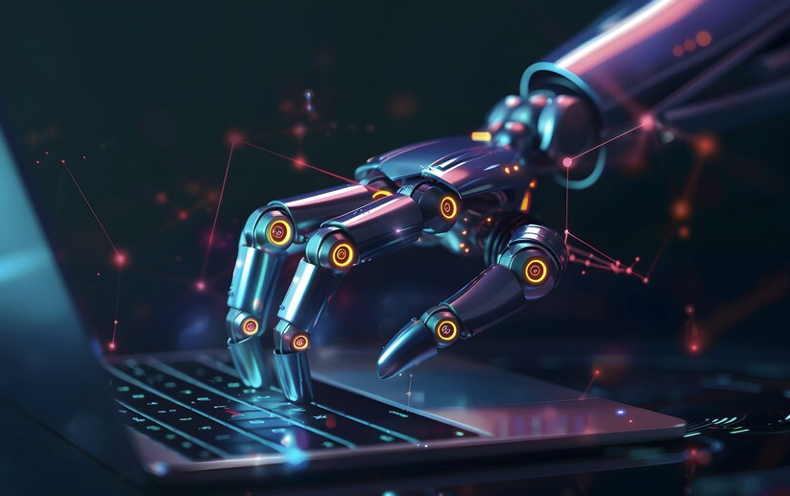
The rise of digital wallets has revolutionized how users manage and transact their finances. As digital wallets become increasingly sophisticated, the need for robust security mechanisms is more critical than ever, particularly in industries like crypto prop trading, where large sums of money are exchanged rapidly. A novel solution that has emerged to enhance security is the integration of robotics with artificial intelligence (AI). By combining the strengths of both technologies, digital wallet providers can create more secure environments for users while improving overall functionality and user experience.
Crypto prop trading, short for cryptocurrency proprietary trading, involves trading crypto assets using the firm's own capital to profit from market opportunities. This fast-paced and high-risk activity requires a secure platform where traders can conduct transactions with confidence. Given the volatility of the crypto market and the potential for cyberattacks, ensuring the security of digital wallets is a top priority for both individual users and organizations.
Traditional security measures, such as encryption, firewalls, and two-factor authentication, provide some level of protection, but they are not foolproof. With cyber threats constantly evolving, it is necessary to implement more advanced solutions that adapt in real-time. This is where the combination of robotics and AI comes into play.
Robotics and AI are typically associated with manufacturing, automation, or self-driving cars. However, when integrated into digital security systems, they offer unique advantages. Robotics, in this context, refers not to physical robots but to software-based bots that can automate tasks, manage complex processes, and interact with systems in intelligent ways. When paired with AI, these bots can enhance security by detecting, preventing, and responding to threats autonomously.
For crypto prop trading, these AI-powered robotic systems can act as vigilant gatekeepers, constantly monitoring the flow of data and transactions. They can identify suspicious activity by analyzing large datasets in real time and take immediate action, such as blocking unauthorized access or freezing accounts if they detect anomalies. The added layer of automation ensures that security is continuously maintained, even during peak trading hours when human oversight may be limited.
AI excels at pattern recognition and predictive analytics, which are critical components of threat detection. In a crypto prop trading environment, AI can identify subtle patterns in transaction data that may indicate a potential security breach or fraudulent activity. For example, AI could flag an unusual login attempt from a location that a user has never visited or detect irregular trading behavior that doesn’t align with the user's typical patterns.
Robotics takes this a step further by automating the response process. If the AI system identifies a potential threat, the robotic process can initiate a series of actions such as temporarily disabling the digital wallet, requiring additional authentication, or notifying the user and relevant authorities. This rapid response time can make a significant difference in preventing major security breaches, especially in crypto prop trading, where time is of the essence.
Another key area where robotics and AI can enhance security is in safeguarding user data and privacy. Digital wallets contain sensitive financial information, and in crypto prop trading, the stakes are even higher, as traders rely on these wallets for their transactions and account balances. AI can ensure that user data is encrypted and securely stored while robotics automates data access controls, making sure that only authorized personnel or systems can access sensitive information.
Moreover, AI can regularly audit the security protocols in place and suggest improvements. By continuously analyzing the performance of encryption algorithms and security measures, AI can adapt to new and emerging threats, offering real-time updates to the digital wallet’s defense mechanisms.
One of the most vulnerable points in any digital wallet system is user authentication. Many platforms rely on passwords or two-factor authentication, which, while effective, can still be compromised. Robotics and AI can provide a more advanced solution by incorporating biometric authentication methods, such as fingerprint recognition, facial recognition, or voice identification.
These AI-driven biometric systems can be seamlessly integrated into digital wallets, offering a higher level of security for crypto prop trading users. Robotics can automate the authentication process, making it more convenient for users without sacrificing security. For example, when a trader logs into their digital wallet, the AI system can instantly verify their identity through biometric data, reducing the likelihood of unauthorized access.
As the use of robotics and AI becomes more prevalent in digital wallets, the implications for crypto prop trading are immense. In addition to enhanced security, these technologies can also improve the overall user experience by streamlining processes, reducing the time it takes to complete transactions, and offering personalized recommendations.
Furthermore, as AI continues to learn from the vast amounts of data generated in crypto prop trading, it will become even more adept at predicting market trends, optimizing trades, and enhancing risk management. For traders, this means greater opportunities to maximize profits while minimizing security risks.
The integration of robotics with AI offers a cutting-edge solution for enhancing the security of digital wallets, particularly in high-stakes environments like crypto prop trading. By automating threat detection and response, safeguarding user data, and improving authentication processes, AI-powered robotic systems provide a robust defense against the ever-evolving landscape of cyber threats. As these technologies continue to advance, they will play an increasingly vital role in ensuring the safety and success of digital wallet users across various sectors, including cryptocurrency trading.